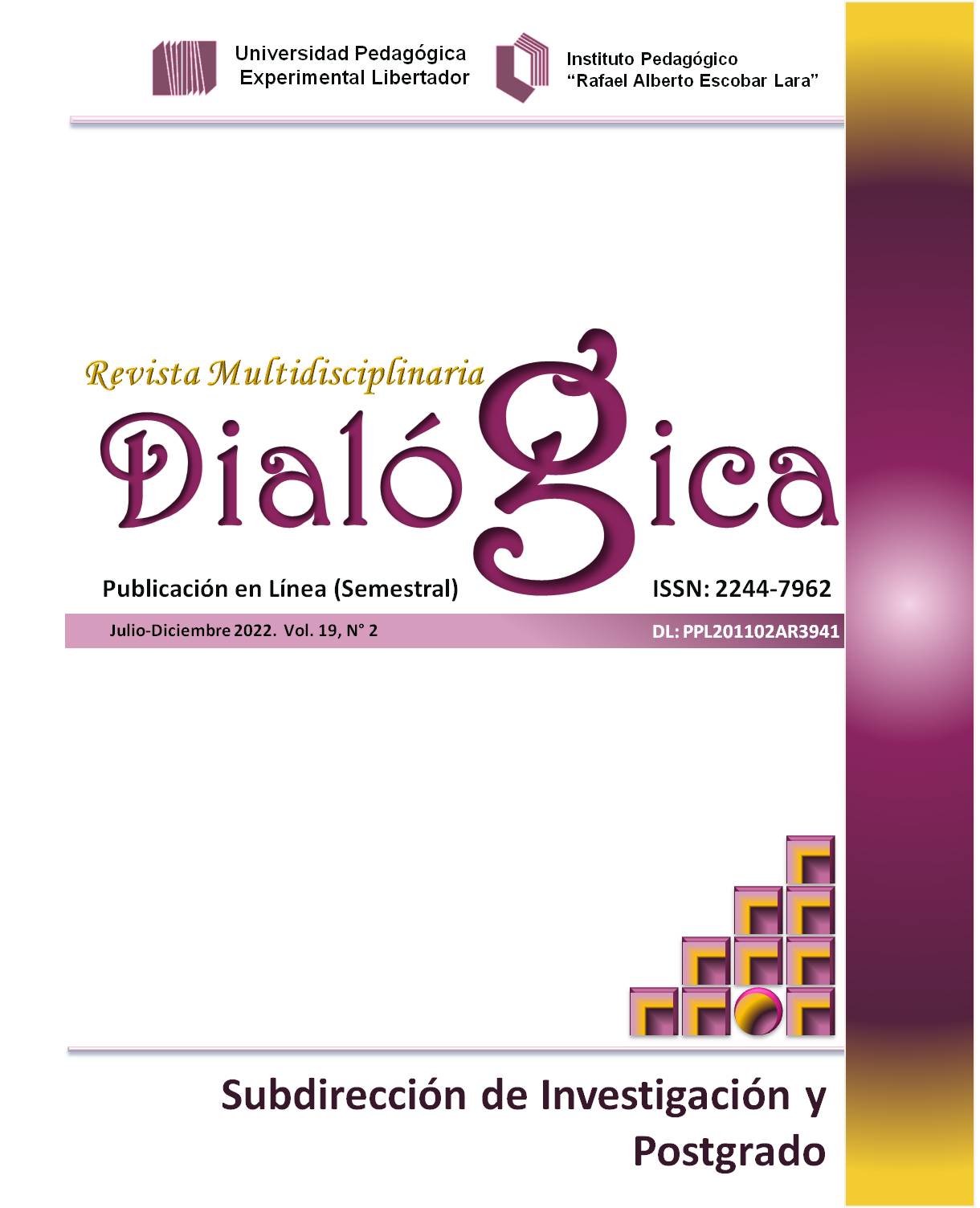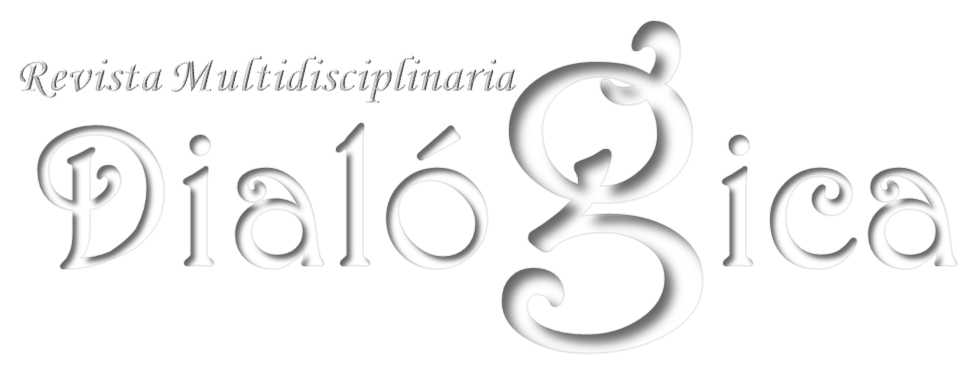THE EDUCATIONAL PROCESS. A VIEW FROM AXIOLOGY IN THE FORMATION OF THE MAN OF THE FUTURE
DOI:
https://doi.org/10.56219/dialgica.v19i2.2156Keywords:
values, teaching, learningAbstract
The teaching and learning process is a determining factor in the life of man, which must include the technical knowledge and the system of values that will shape his education from childhood onwards. The general purpose of this research, linked to the line of research on education and values, was to interpret the educational process and its influence on the formation of man, from an axiological point of view. The approach is qualitative, documentary, with a hermeneutic method, the research design is non-interactive. The input theory is the significant learning theory of Ausbel (1963), the paradigmatic position is the interpretative one of Husserl (1900), focused on the study, description and interpretation of the formation of values in the man of the future and his interrelation with the environment. The results present analyses that are orientations and contributions for reflection.
References
Axiología. En: Enciclopedia.com. https://enciclopedia.net/axiologia//
Axiología. En: Significados.com. https://www.significados.com/axiologia/
Axiología. Unidad de apoyo para el aprendizaje de la UNAM. https://programas.cuaed.unam.mx/repositorio/moodle/pluginfile.php/1151/mod_resource/content/1/contenido/index.html.
Ayaro, E. (2012) Reflexión axiológica de la condición humana. Investigaciones interactivas cobaind. 2 (7). http://bdigital.ula.ve/storage/pdf/cobaind/v2n7/art16.pdf .
Barrera, M. (2010). Modelos epistémicos en investigación y educación (6a. ed.). Quirón.
Cabrera, I., Vásquez, R. (2012). La Educación, un fenómeno social complejo. Revista digital sociedad de la información, 38. http://www.sociedadelainformacion.com/38/complejo.pdf
Calzadilla, R. (2004). La pedagogía como ciencia humanista: conocimiento de síntesis, complejidad y pluridisciplinariedad. Rev. Ped, 25, (72), p. 123-148. http://ve.scielo.org/scielo.php?script=sci_arttext&pid=S0798-97922004000100005&lng=es&nrm=iso
Creswell J. (2009). Research design qualitative quantitative, and mixed methods approaches (3a. ed.).https://www.academia.edu/31998367/Qualitative_quantitative_and_mixed_methods_approached .
García-Retana, J. (2015). Compromiso y esperanza en educación: Los ejes transversales para la práctica docente según Paulo Freire. Revista Educación, 40(1), 113–132. https://doi.org/10.15517/revedu.v40i1.14649.
Morín, E. (2000). Los siete saberes necesarios a la educación del futuro. Unidad de publicaciones. U.C.V. / F.A.C.E.S.
Ocampo López, J., (2008). Paulo Freire y la pedagogía del oprimido. Historia de la Educación Latinoamericana, (10), 57-72. https://www.redalyc.org/articulo.oa?id=86901005.
Reynosa, E. Navarro, O. Zaldívar, A., Díaz , Y. (2019). Importancia de la formación axiológica para el desarrollo sociocultural en Latinoamérica. Revista pedagógica de la Universidad de Cienfuegos. Conrado, 15(69), 341-346. http://scielo.sld.cu/scielo.php?script=sci_arttext&pid=S1990-86442019000400341&lng=es&tlng=es.
Rojas, B. (2007). La axiología como eje transversal, en la gestión del talento humano. Revista educación y valores. 1(7). http://servicio.bc.uc.edu.ve/multidisciplinarias/educacion-en-valores/v1n7/v1n72007-1.pdf.
Rosell W. y Mas, M. (2003) El enfoque sistémico en el contenido de la enseñanza. Educ Med Super, 17(2)http://scielo.sld.cu/scielo.php?script=sci_arttext&pid=S0864-21412003000200002&lng=es&nrm=iso>


 @revistadialogica
@revistadialogica DialogicaUPEL
DialogicaUPEL RevistaDialogicaUPELMaracay
RevistaDialogicaUPELMaracay dialógicaupel@gmail.com
dialógicaupel@gmail.com dialogicaupel.blogspot.com
dialogicaupel.blogspot.com https://issuu.com/dialogicaupel
https://issuu.com/dialogicaupel https://revistas.upel.edu.ve/index.php/dialogica/
https://revistas.upel.edu.ve/index.php/dialogica/









